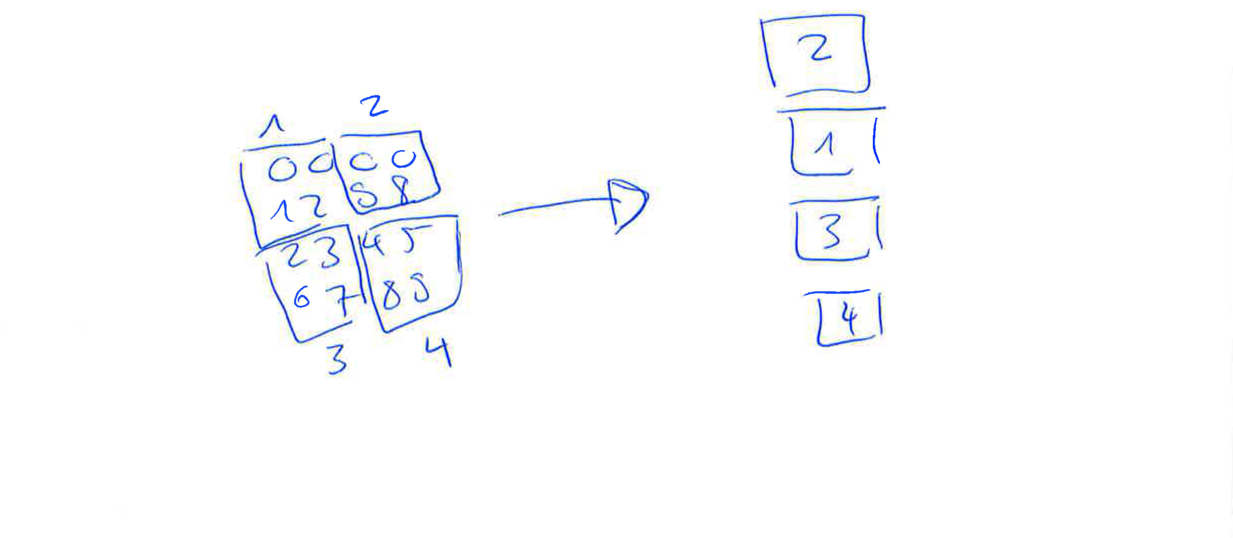An algorithm, drawn by a 24-year-old female PhD student in communication in Switzerland.

Good. Then there is a second small drawing task and that would be: Could you draw me how an algorithm works? First, I'll draw some data again. So these are some numbers, digits, whatever, which at first don't really have a meaning. And in order for the algorithm to work with that, it has to be categorized first. That means they are put into such categories. These are the boxes around the data? Exactly. Then I draw such boxes around the data and for that there is actually a code, which is generated by the algorithm itself, which defines these categories and finally there is a next process. Tha't what this arrow is for and on the next level the algorithm decides what is more important in relation to the different categories. That means, if there are four different categories, the algorithm decides now for example that category two is higher and then maybe category one, three, four. And this is actually what the algorithm decides. Why is this order formed? It is actually formed on the basis of fixed protocols and codes, which were defined by designers, i.e. by people, and not automatically in that sense. But simply, how do you say it? Fixed instructions for use, so to speak. Okay. And can you give me an example to explain the process? For example, if there were four different forms of advertising. So four different contents, then the algorithm decides what works best for a particular audience. Ok, so one would get 2, 1, 3, 4 and the next could get 1, 4, 3, 2. Exactly. Okay, good. One more question: Where does your knowledge of algorithms come from? From my dissertation [laughs]. Yeah? So you would say that you have acquired this knowledge in the last months? Well, I would say that there was no knowledge in that sense before. You heard about it and read reports about it and were interested in it. Maybe more interest than knowledge. Since the doctorate, I would say I have more knowledge. Before it was more like reading different opinions about it, but you don't really have your own opinion, no own founded opinion. Are you quite sure of your knowledge now? Do you now feel quite confident when you talk about algorithms? Yes, I would say only in specific parts. Why only in specific parts? Because it's just a huge field, and it has many applications. In the end, it becomes difficult to have mega expert knowledge about everything. And in your everyday life, besides university: Do you encounter algorithms there? Yes, I would say constantly. Only when you get personalized advertising. What is at the top of your Google search. That's what everyone has in their everyday life. And are you aware of that? Do you think, like...? Yeah. Yeah. And does that influence your behavior? Mmm. I would think that you would be more careful and so... not just be led by it. Thinking more, like in advertising, do I really need this product? Or is this more of a manipulation now? Okay. Because you know, that this advertising is very specific to you right now and then you can reflect that a little bit more ... Yeah, or right now on Google search. If you enter any terms and then only the top ten, which are clearly ranked high and you know, ok below can actually come something better. That you then rather go further than just the first ten. Okay, great. Thanks a lot.